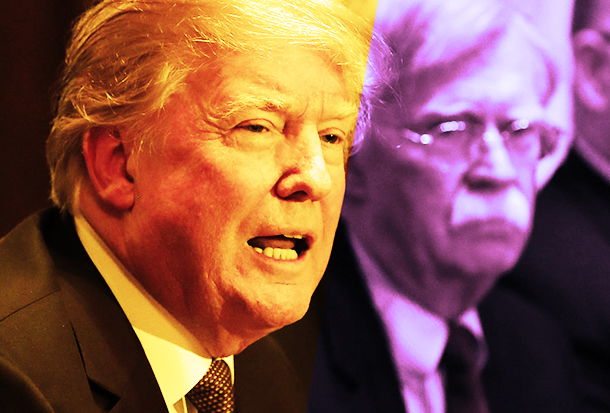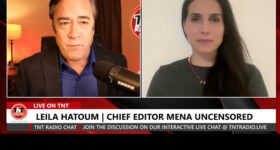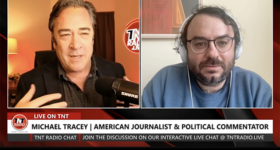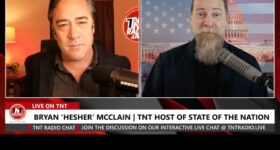
By Doug Bandow
The American Conservative
President Donald Trump has at last rediscovered his core foreign policy beliefs and ordered the withdrawal of U.S. troops from Syria. Right on cue, official Washington had a collective mental breakdown. Neocons committed to war, progressives targeting Trump, and centrists determined to dominate the world unleashed an orgy of shrieking and caterwauling. The horrifying collective scream, a la artist Edvard Munch, continued for days.
Trump’s decision should have surprised no one. As a candidate, he shocked the Republican Party establishment by criticizing George W. Bush’s disastrous decision to invade Iraq and urging a quick exit from Afghanistan. As president, he inflamed the bipartisan War Party’s fears by denouncing America’s costly alliances with wealthy industrialized states. And to almost everyone’s consternation, he said he wanted U.S. personnel out of Syria. Once the Islamic State was defeated, he explained, Americans should come home.
How shocking. How naïve. How outrageous.
The president’s own appointees, the “adult” foreign policy advisors he surrounded himself with, disagreed with him on almost all of this—not just micromanaging the Middle East, but subsidizing Europeans in NATO, underwriting South Korea, and negotiating with North Korea. His aides played him at every turn, adding allies, sending more men and materiel to defend foreign states, and expanding commitments in the Middle East.
Last spring, the president talked of leaving Syria “very soon.” But the American military stayed. Indeed, three months ago, National Security Advisor John Bolton announced an entirely new mission: “We’re not going to leave as long as Iranian troops are outside Iranian borders and that includes Iranian proxies and militias.”
That was chutzpah on a breathtaking scale. It meant effectively that the U.S. was entitled to invade and dismember nations, back aggressive wars begun by others, and scatter bases and deployments around the world. Since Damascus and Tehran have no reason to stop cooperating—indeed, America’s presence makes outside support even more important for the Assad regime—Bolton was effectively planning a permanent presence, one that could bring American forces into contact with Russian, Syrian, and Turkish forces, as well as Iranians. As the Assad government consolidates its victory in the civil war, it inevitably will push into Kurdish territories in the north. That would have forced the small American garrison there to either yield ground or become a formal combatant in another Middle Eastern civil war.
The latter could have turned into a major confrontation. Damascus is backed by Russia and might be supported by Ankara, which would prefer to see the border controlled by Syrian than Kurdish forces. Moreover, the Kurds, under threat from Turkey, are not likely to divert forces to contain Iranians moving with the permission of the Damascus government. Better to cut a deal with Assad that minimizes the Turks than be Washington’s catspaw.
The Pentagon initially appeared reluctant to accept this new objective. At the time, Brigadier General Scott Benedict told the House Armed Services Committee: “In Syria, our role is to defeat ISIS. That’s it.” However, the State Department envoy on Syria, Jim Jeffrey, began adding Iran to his sales pitch. So did Brian Hook, State’s representative handling the undeclared diplomatic war on Iran, who said the goal was “to remove all forces under Iranian control from Syria.”
Apparently this direct insubordination came to a head in a phone call between President Trump and Turkish President Recep Tayyip Erdogan. “Why are you still there?” the latter asked Trump, who turned to Bolton. The national security advisor was on the call, but could offer no satisfactory explanation.
Perhaps at that moment, the president realized that only a direct order could enforce his policy. Otherwise his staffers would continue to pursue their militaristic ends. That determination apparently triggered the long-expected resignation of Defense Secretary Jim Mattis, who deserves respect but was a charter member of the hawkish cabal around the president. He dissented from them only on ending the nuclear agreement with Iran.
Still in place is Secretary of State Mike Pompeo, who so far has proven to be a bit more malleable though still hostile to the president’s agenda. He is an inveterate hawk, including toward Tehran, which he insists must surrender to both the U.S. and Saudi Arabia as part of any negotiation. He’s adopted the anti-Iran agenda in Syria as his own. His department offered no new approach to Russia over Ukraine, instead steadily increasing sanctions, without effect, on Moscow. At least Pompeo attempted to pursue discussions with North Korea, though he was certainly reluctant about it.
Most dangerous is Bolton. He publicly advocated war with both Iran and North Korea before his appointment, and his strategy in Syria risked conflict with several nations. He’s demonstrated that he has no compunctions about defying the president, crafting policies that contradict the latter’s directives. Indeed, Bolton is well-positioned to undermine even obvious successes, such as the peaceful opening with North Korea.
Supporting appointments to State and the National Security Council have been equally problematic. Candidate Trump criticized the bipartisan War Party, thereby appealing to heartland patriots who wonder why their relatives, friends, and neighbors have been dying in endless wars that have begotten nothing but more wars. Yet President Trump has surrounded himself with neocons, inveterate hawks, and ivory tower warriors. With virtually no aides around him who believe in his policies or were even willing to implement them, he looked like a George Bush/Barack Obama retread. The only certainty, beyond his stream of dramatic tweets, appeared to be that Americans would continue dying in wars throughout his presidency…
Continue this story at The American Conservative
READ MORE SYRIA NEWS AT: 21st Century Wire Syria Files
SUPPORT 21WIRE – SUBSCRIBE & BECOME A MEMBER @21WIRE.TV













